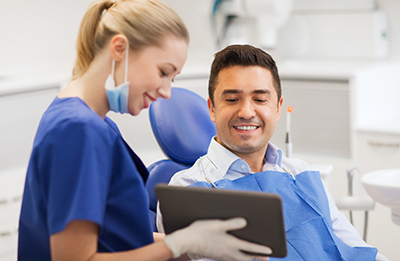- April 9, 2024
Nurturing Your Smile: The Natural Approach of Biological Dentistry
Image Source: Google
Biological dentistry, also known as holistic or environmental dentistry, focuses on the connection between oral health and the overall well-being of the body. This approach emphasizes the use of non-toxic materials and techniques to promote dental health, considering the impact on the entire body. By adopting a natural approach to dentistry, individuals can not only maintain a healthy smile but also support their overall health and well-being.
The Principles of Biological Dentistry
1. Whole-body health
- Biological dentistry recognizes the interconnectedness of oral health with the health of the entire body.
- It focuses on treating dental issues in a way that promotes overall well-being.
2. Minimally invasive treatments
- Biological dentistry aims to preserve healthy tooth structure and avoid unnecessary procedures.
- It emphasizes preventive care to address dental issues before they progress.
The Natural Approach to Dental Care
1. Non-toxic materials
Biological dentists use biocompatible materials that are safe for both the patient and the environment. This includes:
- Composite resin fillings made of natural materials like silica and quartz.
- Porcelain crowns that mimic the appearance and function of natural teeth.
- BPA-free dental sealants to protect against cavities.
2. Metal-free restorations
Traditional amalgam fillings contain mercury, a toxic substance that can pose health risks. Biological dentistry offers metal-free alternatives, such as:
- Composite fillings that are both durable and aesthetically pleasing.
- Ceramic or zirconia implants for a natural-looking replacement of missing teeth.
The Benefits of Biological Dentistry
1. Improved overall health
By avoiding toxic materials and treatments, biological dentistry can contribute to better overall health. Benefits may include:
- Reduced risk of systemic health issues related to dental toxicity.
- Enhanced immune function and better response to infections.
- Improved digestion and nutrient absorption through proper chewing.
2. Sustainable practices
Biological dentistry is committed to eco-friendly practices that support environmental sustainability. This includes:
- Minimizing waste and pollution by using biodegradable materials.
- Conserving resources through energy-efficient dental equipment.
- Promoting the use of digital x-rays to reduce radiation exposure.
Choosing a Biological Dentist
1. Credentials and experience
When selecting a biological dentist, consider their qualifications and experience in holistic dental care. Look for:
- Certifications from reputable organizations in biological dentistry.
- Positive patient reviews and testimonials about their approach to care.
- Experience with natural treatments and non-toxic materials.
2. Personalized treatment plans
A biological dentist should take a personalized approach to your dental care, considering your unique needs and preferences. They should:
- Perform a thorough assessment of your oral health and overall well-being.
- Discuss treatment options that align with your values and health goals.
- Create a comprehensive plan for preventive care and long-term oral health.
Conclusion
Biological dentistry offers a natural and holistic approach to dental care that considers the impact on both oral health and overall well-being. By choosing a biological dentist who prioritizes non-toxic materials, minimally invasive treatments, and personalized care, individuals can nurture their smiles in a way that supports their health and the environment. Embracing the principles of biological dentistry can lead to improved overall health, sustainable practices, and a brighter, healthier smile for years to come.
